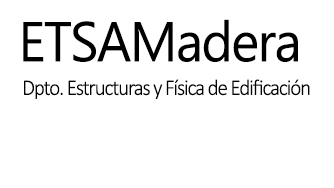
Abstract
Thermal modification of wood is an established alternative to other preservative treatments that may be aggressive to the environment. When the use of thermally modified wood in structural applications is envisioned, the fracture properties become extremely important due to the significant increase in brittleness. In the work reported herein, the fracture toughness of thermally modified beech (Fagus sylvatica L) under Mode I loading was quantified using Compact-Tension (CT) specimens, loaded under steady-state crack propagation conditions. The influence of three heat treatments levels and three moisture contents, as well as two crack propagation systems (RL and TL) was studied. Complete load-displacement records were analysed and the critical stress intensity factor, KIc, and specific fracture energy, Gf, evaluated. Thermal modification was found to significantly affect the material behaviour; the more severe the thermal treatment, the lower the values of KIc and Gf, with less difference being observed between the most severe treatments. Moisture content was also found to influence fracture toughness, but had a much less significant effect than the heat treatment.

